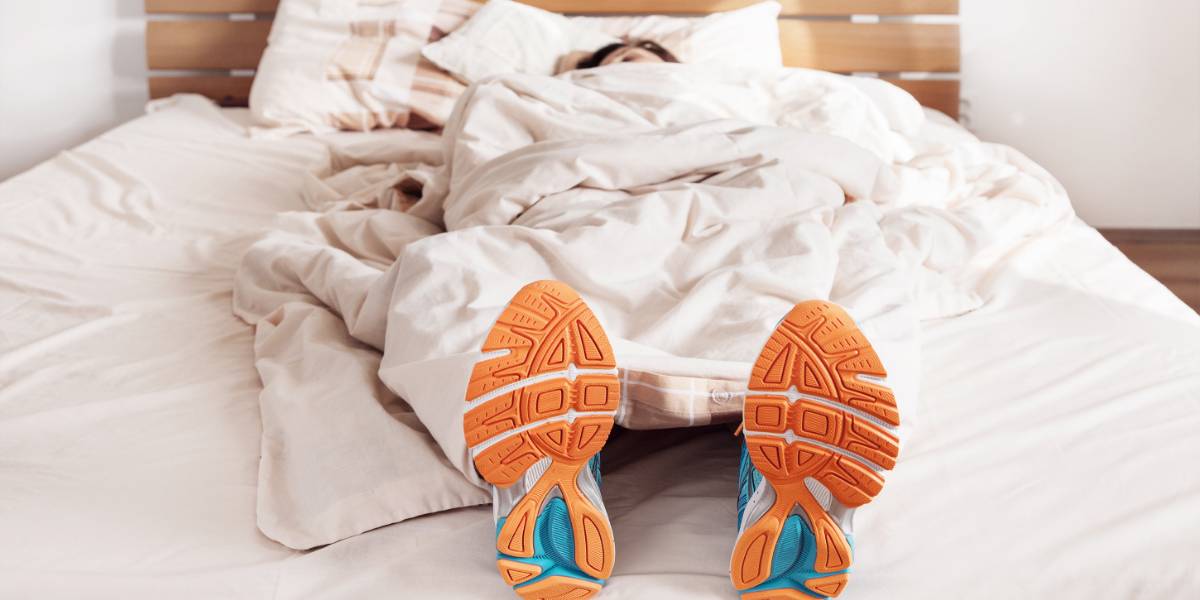Regular exercise could help to undo the negative impact on health from getting too much or too little sleep.
That’s according to researchers who studied data from more than 92,000 British adults.
Not getting enough sleep, or sleeping too much, is linked to several health complaints and a shorter life expectancy.
- Sleeping less than 5 hours a night can double the risk of clogged leg arteries
- Light exposure before sleep linked to risk of gestational diabetes
However, research by a team from Guangzhou Medical University in China found that the risk of premature death from cancer, heart attack or stroke was wiped out by exercise.
The study participants, who were aged from 40 to 73, all wore an accelerometer wristband for seven days between the period 2013 to 2015.
The results showed that sleeping less than six hours raised the risk of an early death by 16%. Conversely, sleeping too much – more than eight hours – increased the risk by 37%.
However, those people who undertook 150 minutes of moderate exercise a week or 75 minutes of high intensity exercise a week, saw this risk dissipate.
Not doing enough exercise and not getting the right amount of sleep carried a 69% greater risk of heart attack and a 21% increased risk of dying from cancer – but again, these risks disappeared when participants engaged in moderate or high levels of exercise.
- Good sleep: why sleep is important when it comes to weight loss
- Good sleep boosts body’s immune response to vaccination
Dr Jihui Zhang, who led the research, said: “Our findings suggest that health promotion efforts targeting both physical activity and sleep duration may be more effective in preventing or delaying premature death in middle-aged and older adults than focusing on one behaviour alone.
“In an ideal scenario, people would always get healthy amounts of both sleep and physical activity.
“However, our study indicates that getting sufficient exercise may partially offset the detrimental impact of missing a good night’s sleep.”







